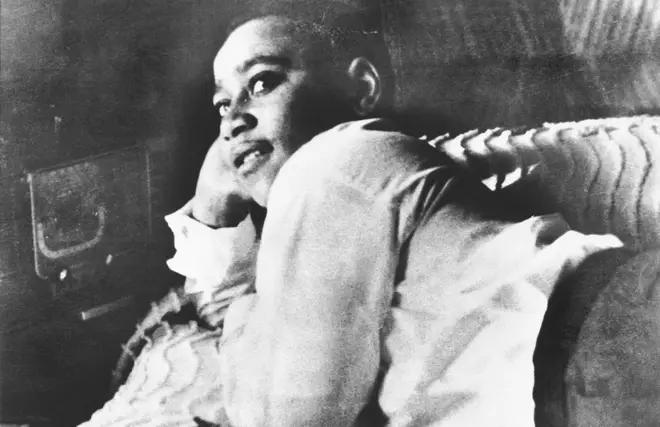On Air Now
The Classic FM Hall of Fame Hour with Tim Lihoreau 9am - 10am
22 March 2022, 18:37

‘Emmett Till, A New American Opera’, is scheduled to have its world premiere tomorrow in New York, but thousands of students have called on the opening performances to be cancelled.
More than 12,000 students from the City University of New York (CUNY) have signed a petition to cancel the world premiere of an opera which depicts a high profile lynching from 1955.
Emmett Till, A New American Opera, which is due to have its opera at CUNY’s John Jay College on March 23, was conceived by playwright and librettist Clare Coss, and composer Mary D. Watkins.
The opera portrays a true story of the lynching of the 14-year-old Emmett Till, who was brutally murdered in 1955 after he was accused of offending a white woman in her family's grocery store.
However, the production adds a new character to the story, a young white teacher named Roanne Taylor, who acts as the lens for the opera.
The petition against the opera was started by Mya Bishop, a student at John Jay College. Bishop explains in her Change.org petition that Coss, who is white, “is out of line for taking it upon herself to turn Black trauma into entertainment and for exploiting a Black tragedy to propel her career and relieve her of her guilt about her whiteness.”
Read more: Society dedicated to ‘preserving’ Western classical music sparks accusations of racism
Emmett Till, A New American Opera, will have its world premiere at @JohnJayCollege. → https://t.co/P3POYyQf02 pic.twitter.com/pDMCE8mgFR
— Playbill (@playbill) March 7, 2022
Earlier this month, the Black Opera Alliance also denounced the opera for “telling this historic story by a white woman and from a white vantage point.”
In an Instagram post, the alliance explained, “Carolyn Bryant (the white woman who falsely accused Emmett Till) still walks free, and now she can walk into a theater and see the story of the lie she got away with--through the eyes of a fictional, fellow white woman.
“While we feel for the Black people involved in this opera, we do not support the rehashing of Black trauma for white entertainment. By centering a white character in a story of Black trauma, the librettist, Clare Coss takes an experience she has no claim to and centers whiteness.
“White saviorism is not allyship, it is violence, and we condemn it. It is time for Black joy in opera, Black love in opera, Black triumph in opera, from Black perspectives, and we will continue to work for that progress.”
Read more: The exploitation of pianist Thomas ‘Blind Tom’ Wiggins, the musical prodigy born into slavery
Bishop also highlights that the character of Emmett Till, a 14-year-old boy, will be played by Robert Mack, an adult operatic tenor.
“This decision exacerbates the adultification of Black children which has historically led to their brutalization,” explains Bishop, “If we are going to tell the story of Emmett Till, it should only be from a Black perspective, a Black writer, and permission and approval from Till's family.”
Both creators have responded to the backlash, defending their work, and the opera’s composer has said the online pushback is an “insult to [her] as a Black woman”.
Watkins responded to criticism saying, “It is very disturbing that people are condemning this piece without having seen or heard it. They have jumped on the fact that the playwright is white, and assumed all kinds of things about the content of the play.
“Even though there are many artists of color involved in this project, the critics are assuming that we have had no impact on the final shape of the piece and that the playwright has somehow forced all of us to tell her story.
“It is an insult to me as a Black woman and to the company members who are African-American.”
Today we want to congratulate composer Mary D. Watkins who has just been honored with a Visionary Award by @ComposersNow
— HarlemChamberPlayers (@HarlemPlayers) January 25, 2022
We are so thrilled to witness Mary’s success and are looking forward to premiering her new opera “Emmett Till” this March. pic.twitter.com/I7cMvot02U
The composer also defended Coss, calling the librettist “an ally, a life-long activist who has worked hard for eight long years to develop this piece and to raise the funds to produce the first two performances.
“She has been very respectful to me and all the other artists of color on this project. It is my opinion that she has every right as an artist to tell the story of Emmett Till.”
Despite the thousands of signatories on Bishop’s petition, the world premiere and encore performance on Wednesday the 24 March is still scheduled to go ahead.
Bishop ends her petition by challenging her college, saying, “John Jay College brands itself as a ‘social justice school’ and its community as ‘fierce advocates for justice.’
“It's decision to welcome or cancel this play will determine how true that is.”